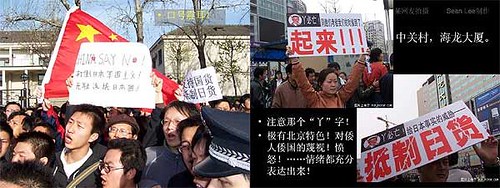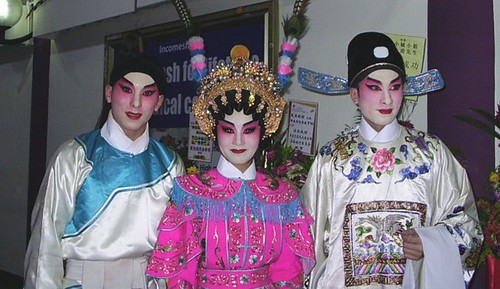
At last month's Asia-Africa conference held in Indonesia, Japanese prime minister made a public apology to the nations which had suffered under Japan’s aggression.
Japan has apologized several times over the years. Is Japan sincere?
Consider the following.
In fact the Japanese Government had never admitted that Asian women were forced to be ‘comfort women’ (sex slaves) until a UN Commission released a report which confirmed the truth. Still some Japanese officials claimed that the women became prostitutes in order to earn quick money!
Similarly, the JG never admitted to capturing thousands of civilians for slave labour, subjecting them to degrading treatment, torture and senseless killing.
The JG has also remained silent on the most notorious war crime committed by Unit 731 which carried out hideous biological and chemical experiments with live prisoners.
The Japanese PM’s annual visit to the Yasukuni Shrine which honours the war dead including 14 Class A war criminals. The Shrine is regarded by Asian nations as a monument to Japanese militarism.
The most recent issue: The approval of a textbook that distorts and waters down Japan’s war atrocities. Some recent books do not even mention the issues of comfort women and forced labour and in many new history textbooks the horrendous Nanking Massacre in which hundreds of thousands of civilians were butchered is merely referred to as the Nanjing Incident.
It seems that Japan still believes that it has done no wrong or that it does not want to confess its guilt and redress the situation. What is the point of apologizing if it is not followed by deeds.
Against such a backdrop, the recent anti-Japan demonstrations in China and South Korea should not be seen as narrow-minded nationalism.
Latest: It was reported today (27/05/05) that a Japanese lawmaker said that those convicted in the Tokyo War Crime Trial were not considered criminals in Japan and that there was nothing wrong in honouring them.
The Guangdong Academy of Cantonese Opera Youth Troupe exudes vigour and vitality. Many artistes are in their early twenties with some in the late teens. The most outstanding artiste is Zeng Xiao Min. She excels whether as a warrior or a maiden.
The operas:
The Invincible Wu Song
Zeng Xiao Min as Pang Jin Lian and Peng Qing Hua as Wu Song. In this version Pang Jin Lian was not portrayed as the adulteress who poisoned her husband but as a woman who was taken advantage of when she was drunk. She did not ask her husband to drink the poisoned wine but she did not stop him when he wanted to drink it not knowing it has been poisoned.
I felt that the storyline was rather disappointing. The most exciting scene was the last scene in which Peng Qing Hua showed his excellent martial and acrobatic skills.
The Magic Pearl
A love story between a heavenly being and an earthly man. In the battle scene Zeng Xiao Min displayed superb martial skills and techniques. One of her signature move was six continuous 360 degrees complete body twists. It was a delight to watch her. Another skill she has mastered was the warding off of spears thrown to her with different parts of the body and in various positions. Xiao Min has a good voice and sings well too.
The Sword of Betrothal
In this opera Peng Qing Hua was the bad guy. I think he was quite successful in this role though his portrayal of the cunning character was not as convincing as the Cantonese film actor Sek Kin or Keong Chung Peng in the old Cantonese films.
The Monkey King and Princess Iron Fan
I think this is the most entertaining opera. This would be a good opera to attract the young or to promote opera in schools – a good fairy tale with humour and great acrobatics. Unfortunately we do not have artistes like Peng Qing Wah or Zeng Xiao Min.
It was a fantastic show by Peng Qing Hua. One highlight was Peng jumping through a row of eight hoops held shoulder-high. Another was his rotating of the monkey king’s golden rod with his hand at amazing speed. His toying of his rod, a knife, a hoop and a hammer and sometimes all items at the same time delighted the audience, particularly the children.
Opera Excerpts
The following two opera excerpts were refreshing and enjoyable. One reason I believe was that they have not been performed here before. Another reason was that the artistes performed well.
1. ‘Compelling a Nephew to go and take The Imperial Exam’ was a hilarious excerpt. Wen Ru Qing played the main scholar who was reluctant to go for the exam because he was in love with a nun. He sang well.
2. ‘Strange encounter’ was about a female ghost asking a man to help her seek justice. Liang Xiao Ying played the ghost. Her singing was melodious and pleasing.
Another excerpt, 'The Assassin', was an experimental piece of modern opera by the Youth Troupe. The fighting part was like what you see in kung-fu movies complete with computer-generated sound effects. I wonder what Cantonese opera traditionalists think of it.
CTC artiste Joanna Wong did not perform the excerpt with Ting Fan as scheduled in the programme. I think she felt out of place in a night dominated by young performers.

